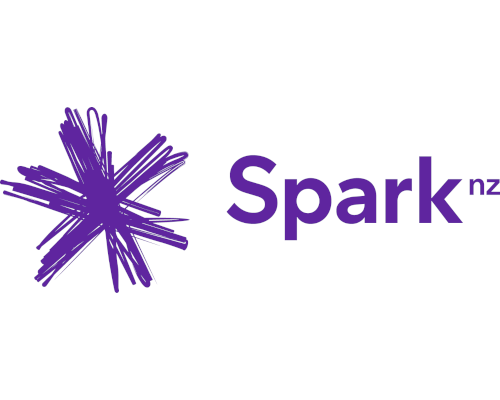MEDIA RELEASE
20 February 2017
SPARK NEW ZEALAND SEEKS SHORT-TERM PAUSE IF SKY TV / VODAFONE NZ MERGER GETS REGULATORY GREEN LIGHT
Pause would enable time for all parties to fairly consider their legal options before merger became a fait accompli
Spark New Zealand (Spark), one of the interested parties opposing the clearance application for the proposed merger between Sky Network Television (Sky) and Vodafone NZ (Vodafone) said today it is seeking a Court ruling for a short-term pause in the event the New Zealand Commerce Commission (Commission) clears the merger later this week.
The Commission is due to announce its decision on the proposed merger on Thursday 23 February 2017. Spark is asking the High Court to order that, in the event the Commission gives clearance, this does not take effect until 36 hours following release of detailed reasons underlying the Commission’s decision. Spark is asking the High Court for an urgent hearing on its application, prior to Thursday’s decision.
Spark GM Regulatory Affairs John Wesley-Smith said a short pause would provide some “breathing space” to allow all interested parties to consider the Commission's reasoning behind a clearance decision, as this would be pivotal in assessing their legal review options.
“This is a question of natural justice: to allow Sky and Vodafone to push ahead with the merger without this breathing space would likely mean the merger would already have been effected, and be difficult to unwind, before opposing parties have had a chance to view the detailed reasoning underlying the Commission’s decision.
“We believe this is a reasonable ask in the context of what’s been a nine-month process already, and is the right thing to do to protect the integrity of the Commission’s process and the legal rights of interested parties. This is a merger proposal with high public interest that has huge implications for consumers with the prospect of less choice and higher prices.
“We expect the Commission’s reasoning will be relatively detailed and fairly complex given the amount of information that has been put before it, so it’s reasonable to have a short period to digest the decision before the merger becomes a fait accompli.
“Given the importance of this decision to the future of broadband, mobile and pay TV markets, it would be a bad outcome if there were grounds to review the decision, yet that became a meaningless exercise because the merger was already firmly in place.”
Wesley-Smith said this does not mean Spark has already decided to take legal action to review in the event the Commission gives its clearance. “That will depend on the reasoning upon which the Commission has based its decision. But it does reflect how seriously we are taking the proposed merger, which we believe will have significant implications for competition.”
He said Spark was among opposing parties who wrote to Sky and Vodafone last week, asking them to voluntarily agree to a pause period following a clearance decision by the Commission. “Sky and Vodafone rejected our requests, so we feel we are left with no choice but to seek a High Court ruling on the matter.”
Wesley-Smith said the legislative framework provides the merging parties far more scope to appeal or review an adverse Commission ruling on a merger proposal, than it does for interested parties in the event of a merger clearance. For instance, if the Commission declined to give clearance to the merger, Sky and Vodafone would have 20 working days in which to lodge an appeal.
Throughout the Commission’s consideration of the Sky/Vodafone proposal, Spark and a large number of other submittershave consistently raised concerns that a merger would significantly lessen competition in the broadband, mobile and pay TV markets – resulting in poorer choice and higher prices for consumers.
“We have particular concerns about Sky’s monopoly in premium sports content, which means New Zealand sports lovers would be the ones to miss out if the merger went ahead in its current form. In today’s digital age, consumers increasingly want and expect to be able to pay for the sports content they want to watch, where and how they want. Viewers have been voting with their wallets away from out-dated content bundle models that force them to pay for unwanted content or service providers,” Wesley-Smith said.



 Science Media Centre: Cyclone Gabrielle's Impacts On NZ's Ecosystems - Expert Reaction
Science Media Centre: Cyclone Gabrielle's Impacts On NZ's Ecosystems - Expert Reaction RNZ: Parts Of Power System Could Be Out For 36 Hours In Event Of Extreme Solar Storm
RNZ: Parts Of Power System Could Be Out For 36 Hours In Event Of Extreme Solar Storm NZAS: New Zealand Association Of Scientists Awards Celebrate The Achievements Of Scientists And Our Science System
NZAS: New Zealand Association Of Scientists Awards Celebrate The Achievements Of Scientists And Our Science System Stats NZ: Retail Spending Flat In The September 2024 Quarter
Stats NZ: Retail Spending Flat In The September 2024 Quarter Antarctica New Zealand: International Team Launch Second Attempt To Drill Deep For Antarctic Climate Clues
Antarctica New Zealand: International Team Launch Second Attempt To Drill Deep For Antarctic Climate Clues Vegetables New Zealand: Asparagus Season In Full Flight: Get It While You Still Can
Vegetables New Zealand: Asparagus Season In Full Flight: Get It While You Still Can 



